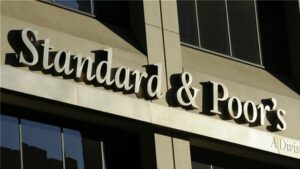The Standard & Poor’s on Thursday (4/7) upgraded the ratings for Greek banks, but did not assign an investment grade to the country’s credit institutions, citing their improving numbers and the upward trend in the Greek economy.
The active clearing of the Greek banking system’s balance sheets is completed and the recovery of Greek banks is a fact. Banks have started to benefit from the positive economic momentum in Greece, S&P said.
The stronger market sentiment has also alleviated the agency’s concerns about their funding profiles, as Greek banks have maintained low funding costs thanks to a large and stable deposit base and access to more affordable funding from overseas debt markets. Banks in Greece have also made great progress in terms of profit generation and the resilience of their business model.
– As a result, long-term credit ratings were upgraded (in alphabetical order) for:
Aegean Baltic Bank: to ‘BB-‘ from ‘B+’ with a stable outlook (12-month reassessment outlook).
Alpha Bank: to ‘BB’ from ‘BB-‘ with a positive outlook.
Eurobank: to ‘BB+’ from ‘BB’ with a positive outlook.
‘BB’ from ‘BB’ with a positive outlook.
National Bank: To ‘BB+’ from ‘BB’ with a positive outlook.
‘BB’ from ‘BB’ with a positive outlook from ‘outlook’.
Piraeus Bank: to ‘BB’ from ‘BB-‘ with a positive outlook.
Piraeus Bank: to ‘BB’ from ‘BB-‘ with a positive outlook.
“From ‘BB’ from ‘BB’ with a positive outlook from ‘Positive’.
Standard & Poor’s focuses on the improved resilience of the domestic banking system. In 2023, non-performing assets declined further due to higher sales, but more importantly, the industry did not record significant new inflows of non-performing loans.
Three of the four largest Greek banks already have NPEs ratios in the 3%-4% range (end-Q1 2024) and analysts expect to see further improvement by end-2026. A supporting factor for the improvement in banks’ credit profiles is the continued positive momentum of the Greek economy. As such, S&P expects Greek banks to manage to maintain stable profitability metrics with a return on tangible equity above 10% over the 2024-2026 period .
S&P notes that positive market sentiment has eased concerns about Greek banks’ funding profile as they are keeping funding costs low thanks to a stable deposit base and access to cheaper funding from international debt markets.
It also says that Greek banks have made significant progress in improving their profitability and the resilience of their business models.
Finally, S&P also cites the European Central Bank’s approval for systemic Greek banks to continue paying dividends after 16 years of non-distribution, which highlights the banks’ improved underlying profitability and stronger capitalization.
Ask me anything
Explore related questions





